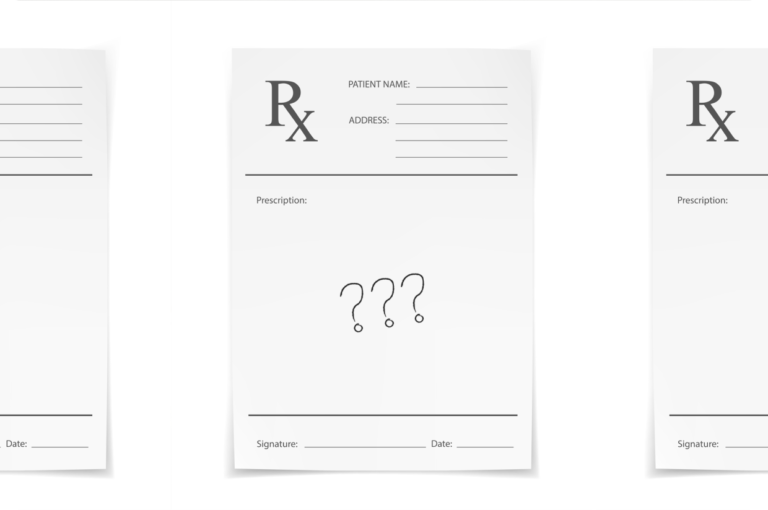Semaglutide (also known as Ozempic) has become a popular treatment option for Canadians. While this medication has been proven to be effective, it’s also important to be aware of its potential side effects.
Let’s explore the side effects of Ozempic that you should know about to make a well-informed decision on whether this medication is a good choice for you.
By educating yourself about the potential side effects of Ozempic, you can better assess the benefits and risks of using this medication. So let’s look into what you should know about the side effects of Ozempic.
What Are the Side Effects of Ozempic?
Ozempic is an injectable medication that works by activating the GLP-1 receptors in the body to lower blood sugar levels. Some of the most common Ozempic side effects include nausea, vomiting, and diarrhea, constipation and acid reflux. Ozempic also slows down digestion, so less food is absorbed into the bloodstream.
In some cases, people can experience low blood sugar levels, which happens most frequently if taking other medications that lower their blood sugar like insulin or a sulfonylurea medication. Patients taking these medications usually have diabetes.
Very low blood sugar levels can cause many symptoms including but not limited to fatigue, dizziness, confusion and seizures.
Rarely patients can develop pancreatitis or gallstones, so you should make sure to seek in person care if you are having significant or persistent abdominal pain.
Some patients have reported experiencing injection site reactions, such as pain, bruising, redness, swelling, and itching, which should go away within a few days and be localized to the injection site only.
Ozempic cannot be used in patients who have a personal or family history of 2 specific diagnoses. These are medullary thyroid carcinoma (MTC) or Multiple Endocrine Neoplasia syndrome type 2 (MEN 2).
It is also important to note that Ozempic cannot be used in patients who are pregnant, breastfeeding, or are trying to conceive. If you are trying to conceive, Ozempic needs to be stopped at least 8 weeks prior.
While Ozempic can be an effective medication for blood sugar, it’s important to contact your health care practitioner in order to choose a treatment option that is best for you.
How Long Do the Side Effects of Ozempic Last?
The length of time that they last and the severity of the side effects with Ozempic vary from person to person. Many people experience short-term side effects, like nausea and vomiting, diarrhea, and acid reflux, for several days or weeks after starting treatment with Ozempic. These symptoms should resolve as your body adjusts to the medication. If they do not go away, then you need to talk to your health care practitioner to have the symptoms assessed. The side effects may return when the medication dose is increased.
Severe, significant or persistent side effects require immediate in-person care.
In some cases, individuals may need to stop taking Ozempic altogether.
You should speak with a healthcare practitioner if you’re experiencing any side effects that are more than mild, while taking Ozempic. They can talk to you about how long the side effects may last, what you can do to manage them, determine if they are appropriate and can ensure your overall health and well-being.
Can Ozempic Cause Hair Loss?
Hair loss can have many underlying causes and can be caused by different factors such as stress, vitamin deficiencies, hormonal imbalances, and certain medications. Hair loss is not a common side effect of Ozempic, but has been reported.
If you experience an unexplained change in your hair growth pattern or are having significant hair loss while taking Ozempic, speaking with a healthcare practitioner to rule out other potential causes is essential.
Can Ozempic Cause Muscle Pain?
No, muscle pain is not a known side effect of taking Ozempic. If you experience any significant or new muscle pain while using Ozempic, your best course of action is to speak with your healthcare practitioner to assess the cause and identify if any further action needs to be taken.
Can Ozempic Cause Joint Pain?
No, joint pain is not a known side effect of a potential side effect of taking Ozempic. Joint pain can be characterized as aching, stiffness, or soreness in the joints and can be caused by many things including but not limited to like inflammation, injury, medical conditions, or medications.
If you experience joint pain while taking Ozempic, speak to a healthcare practitioner to assess the cause and identify if further action needs to be taken.
Can Ozempic Cause Constipation?
Yes, constipation is a common side effect of taking Ozempic. Constipation is generally defined as having fewer than three bowel movements in a week. Constipation can also be caused by many things other than ozempic, such as dehydration, physical activity level, dietary food choices, medical conditions, and medications.
Regular physical activity, increased fluid intake and increased fiber can be helpful for some people with constipation.
If you are noticing a significant change in your bowel habits, including constipation while taking Ozempic, speak with a healthcare practitioner to assess the cause and determine if further action needs to be taken.
Can Ozempic Make You Tired?
Yes, feeling tired can be a side effect of taking Ozempic. However, fatigue can be caused by various factors depending on the individual and their situation, and can range from mild to severe.
If you are experiencing changes in your energy level or fatigue while taking Ozemipic, it is essential to consult with your healthcare practitioner in order to look into the potential causes and any other symptoms you may be experiencing, since fatigue can be caused by many different medical and non-medical conditions.
Does Ozempic Cause Depression?
There is no direct link at this point between taking Ozempic and depression, though some patients may experience mood changes. These changes can range from mild to severe, depending on the individual and their situation. Biological, psychological, and social factors can all cause or be involved in depression.
Semaglutide was not studied in patients with major depressive disorder or with a history of suicide attempts or thoughts of suicide. As a result, if you are experiencing symptoms of depression, it is crucial to speak with your healthcare practitioner as soon as possible, especially if your depression symptoms are new, different or worsening.
A healthcare practitioner can assess and may identify any potential underlying causes contributing to your symptoms. They can also determine the most appropriate treatment plan for you.
If you feel unsafe, feel like harming yourself or others, or are having any other significant symptoms or significant changes in your mood or symptoms, call 911 or seek immediate in-person care.
Does Ozempic Cause Anxiety?
There is no direct link at this point between taking Ozempic and anxiety, some patients may experience mood changes. while on the medication and a few users have reported feeling anxious or increasing anxious feelings.
These changes can range from mild to severe, depending on the individual and their situation. Biological, psychological, and social factors can all cause or be involved in anxiety.
It is essential to speak to a healthcare practitioner if you are experiencing anxiety, especially if you are experiencing new, different or worsening of your anxiety.
If you feel unsafe, feel like harming yourself or others, or are having any other significant symptoms or changes in your mood or symptoms, call 911 or go directly to the nearest emergency department.
If you’d like more information about how to get Ozempic online in Canada, speak to a Felix healthcare practitioner today.
Tips for Managing Side Effects
The most common side effects of Ozempic are gastrointestinal (nausea, vomiting, constipation, and acid reflux). There are a few things that you can try that may help manage them, such as:
- Eating smaller, more frequent meals
- Eating slowly
- Drinking plenty of water
- Avoiding fatty foods
- Avoiding eating in the evening/night
- Increasing the amount of fiber in your food
You should speak with a healthcare practitioner if you’re experiencing any side effects that are more than mild, while taking Ozempic. Severe, significant or persistent side effects require immediate in-person care.



